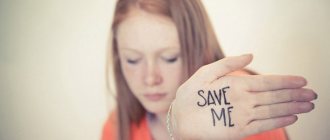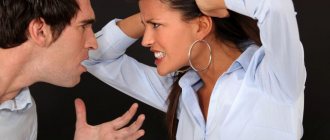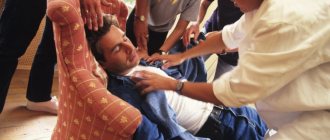Atypical depression belongs to the class of emotional disorders, but it differs from “ordinary” depression in that it manifests itself in the form of rare or mild symptoms. Despite this, atypical depression accounts for almost half of all depression known to science. It manifests itself in the form of short episodes, which, however, are observed much more often than with other types of depression.
Most often, atypical depression occurs in women. This disorder is often observed in people of adolescence and young adulthood. Atypical depression can also be accompanied by other diseases and disorders - for example, it is closely related to drug addiction.
The development of atypical depression usually occurs against the background of other mental disorders: psychasthenia, hysterical psychopathy and others. Due to the fact that its symptoms are quite difficult to detect, people are in no hurry to consult a psychiatrist and come with their problems to a general practitioner.
Call us right now: +7 (812) 454-00-50
or make an appointment online
By clicking on the button, you accept the terms of the company's privacy policy and give permission to process your personal data.
Prices for Ultramed clinic services
Symptoms
ICD-10
The international diagnostic classification ICD-10 includes atypical depression under the heading “
other depressive episodes
.”
The ICD-10 diagnostic guidelines note the presence, as a rule, of a somatic variant of depressive symptoms with non-diagnostic symptoms such as tension, anxiety or despair. It is also possible to combine somatic depressive symptoms with persistent pain or exhaustion not due to organic causes.[1] DSM-IV-TR
The DSM-IV diagnostic classifier defines atypical depression as having the following symptoms: a) Emotional reactivity (increased emotional response to external stimuli) b) At least two more of the following symptoms:
- increased appetite or weight gain;
- increased drowsiness (as opposed to insomnia in the typical version of melancholic depression);
- feeling of heaviness in the limbs;
- history of increased sensitivity to rejection in interpersonal relationships (including during remission), which leads to significant impairment of social activity.[2]
The manifestation of symptoms of atypical depression is often associated with the development of bipolar disorder, especially bipolar II disorder, in patients. [3][4]
What is depression?
The term “depression” has become firmly entrenched in the lives of modern people. Depression (from the Latin deprimo, “to press down”) is a type of mental disorder. Typical signs are lack of motivation, loss of interest in life and the ability to enjoy it (anhedonia). Associated factors of depressive states are low self-esteem, exaggerated feelings of guilt, exhaustion, impaired concentration, and insomnia.
According to statistical studies conducted in 2001, every fourth person on the planet is prone to depressive disorder. Only a third of those diagnosed with depression are treated. At the time of the research, depression ranked 4th among global mental problems of humanity. The forecast for 2020 was disappointing: today depression is in 2nd place.
It is noteworthy that this problem tormented our ancestors less often, because their main task was physical survival. Now that most basic needs have been satisfied, humanity is increasingly suffering from mental illnesses. And depression is rightfully considered their queen. Scientists put forward the theory that this condition is a sign of the evolution of human thinking. Therefore, depression has become a problem in our advanced times. Moreover, scientists were able to identify the advantages of depression. It promotes critical and analytical thinking and removes the “rose-colored glasses” that sometimes interfere with a sober assessment of the situation. However, depression is a disorder that prevents you from living fully, so the condition requires correction.
Treatment
In the treatment of atypical depression, MAO inhibitors are used, the therapeutic effectiveness of which, especially phenelzine, is superior to tricyclic antidepressants. [5] Some studies have shown that the effectiveness of the new generation of antidepressants, such as selective serotonin reuptake inhibitors (SSRIs), is inferior to MAO inhibitors. [6] However, the available data are insufficient, and the effectiveness of SSRIs compared with MAO inhibitors in the treatment of atypical depression requires further research.[7] Using several antidepressants from different groups together. For example, a combination of bupropion, mirtazapine and one of the SSRI drugs, such as fluoxetine, escitalopram, paroxetine, sertraline. Or bupropion, mirtazapine and an antidepressant from the SNRI group (venlafaxine, milnacipran or duloxetine).
The use of psychotherapeutic treatments has also been shown to be effective in treating atypical depression.[8]
Recommendations for people and their loved ones suffering from atypical depression
Atypical depression is widespread in modern society. Unfortunately, this problem can affect every family. It is important to detect it in time, take appropriate measures and create the most comfortable atmosphere for your loved one for a speedy recovery. Psychologists recommend adhering to the rules of communication with people suffering from depression that “laughs.”
Admit there is a problem
Atypical depression is its most dangerous type because it is difficult to define. Therefore, it is important to be attentive to yourself (your loved one) and not turn a blind eye to the problem. This is the first step in the right direction.
Advertising will be placed here
Find someone you trust
If your loved one is in trouble, become that person for them. In a state of depression, it is important to have someone in your environment with whom you can talk about the things that worry you, throwing off all the masks. The active listening format implies emotional involvement in the dialogue without value judgment. When listening to a person, do not devalue his emotions. Taboo phrases: “You’re fooling yourself,” “It’s not so scary,” “Don’t pay attention,” etc. They talk about your indifference. Reliable support, non-judgment and acceptance are an invaluable resource.
Work with self-esteem
One of the basic causes of depression is lack of self-acceptance, and it is directly related to a lack of self-worth. Psychologists compare self-esteem to the immune system. Its normal level protects against negative influences and preserves psychological and physical health. A simple but effective way to increase self-esteem is to write yourself a letter. Honestly admit your imperfections, and end your appeal with words of support and faith in your own strength.
Notes
- World Health Organization. The ICD-10 classification of mental and behavioral disorders. Clinical description and diagnostic guideline. Geneva: World Health Organization, 1992
- American Psychiatric Association. Diagnostic and Statistical Manual of Mental Disorders, Fourth Edition Revised. Text revision. Psychiatric Press, Inc., Washington, DC: 2000
- Benazzi F. Prevalence of bipolar II disorder in atypical depression. Eur Arch Psychiatry Clin Neurosci. 1999;249(2):62-5. PMID 10369151
- Tanvir Singh, Kristi Williams, Atypical Depression Psychiatry (Edgmont). Apr 2006; 3(4): 33–39. PMCID: PMC2990566
- Stewart JW, Thase ME Treating DSM-IV depression with atypical features. J Clin Psychiatry 2007 Apr;68(4):e10 PMID 17474800
- Lonnqvist J, Sihvo S, et al. Moclobemide and fluoxetine in atypical depression: a double-blind trial. J Affect Disord. 1994 Nov;32(3):169-77.
- Henkel V. et al. Treatment of depression with atypical features: a meta-analytic approach. Psychiatry Res. 2006 Jan 30;141(1):89-101. PMID 16321446
- Lauren M. Weinstock et al. Brown Behavioral Activation for the Treatment of Atypical Depression: A Pilot Open Trial Behav Modif. July 2011; 35(4): 403–424. PMID 21507998
Apathetic depression and its treatment
A state of apathy is one of the first signs of depression; it is often its predominant symptom, which prevents one from taking any steps to get rid of the disease. In this case, we are talking about apathetic depression.
The word "apathy" is of Greek origin and means insensitivity and indifference. Indeed, a person suffering from an apathetic form of depression is indifferent and indifferent to literally everything. Even your favorite activities and dear people do not evoke any emotions. Just a feeling of hopelessness and uselessness. Motivation for action disappears before our eyes, and hopelessness rolls in like a shock wave.
It would seem, how could complete inaction be dangerous? It turns out that the state of apathy has an extremely negative effect on the deep layers of brain cells and negatively affects the psycho-emotional state of the patient.
In addition to emotional instability, with apathetic depression there is a disruption at the hormonal level, which is often the cause of the disease. Therefore, you should not ignore medications prescribed by your doctor to correct hormonal levels. Many people are afraid of gaining weight or losing hair as a result of using such medications, but these fears are unfounded. The level of norepinephrine and serotonin will not add extra pounds to you.
Apathetic depression can and should be treated. Be attentive to yourself and your loved ones, because there is nothing more valuable in the world than health and a strong family.
Links
| Affective disorders (mood disorders) in ICD-10 | |
| F30—F39 Affective disorders |
|
| Other |
|
Traditional medicine and prevention
Medicinal herbs are mainly used as sedatives or activity stimulants. Decoctions and infusions of motherwort, valerian, peony, oregano, heather, passionflower, hawthorn, teas with the addition of linden and mint have a sedative effect to normalize anxiety.
In case of loss of strength, exhaustion and fatigue, extracts and herbal teas from pink radiola, chamomile, mordovnik, tincture of lemongrass and ginseng are prescribed to increase vitality. Modern pharmaceuticals also use the medicinal properties of herbs to create medicines from plants: Novo-Passit, Deprim, which improve sleep, relieve anxiety and fatigue.
In order to avoid the development of depressive disorders, the following preventive measures will be useful:
- Maintaining a healthy and active lifestyle: playing sports, walking, giving up bad habits.
- Avoiding conflict situations and excessive physical and emotional stress.
- Chat with friends.
- Doing your leisure time with your favorite activities.
- If possible, an annual vacation with a trip to nature.
Treatment of depressive conditions requires an individual approach to each patient from a psychotherapist or psychiatrist. This is a long and difficult process that combines competent therapy with the use of a complex of medications.
Psychotic depression: causes
The main cause of psychopathic depression is a hereditary predisposition: research by scientists has shown that 80% of patients had relatives who also suffered from this illness, or similar types of depressive disorders.
The biological version of the disease is a disruption of brain activity, which appears as a result of a lack of chemicals responsible for a person’s emotional background.
Another cause of the disease is the presence of certain character traits in a person. For example, a psychasthenic personality type, which is characterized by a tendency to reflection, introspection and increased anxiety. Such individuals are at risk, because in addition to indecisiveness and feelings of inferiority, they have decreased adaptation to life and various life circumstances. Such people doubt their actions, are dissatisfied with themselves, are passive and easily suggestible. There is increased vulnerability, weakness and a tendency towards melancholy. Over time, obsessive actions, neurotic tics and fearfulness may appear.
Psychotic depression can occur in people who use steroids. The cause of the disease may also be the presence of cancer or chronic pain.
Physical violence, a strong emotional outburst, the loss of a loved one - all this could cause a depressive disorder in the patient. Also, untreated long-term depression and apathy, together with a hereditary predisposition, could develop into a more serious mental illness.
An important factor in the course of the disease is the time of year: often, depression in patients occurs in the autumn or spring.







